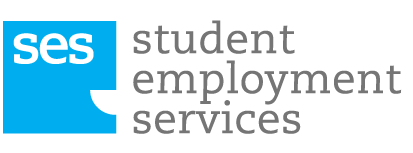How to get a job in 2 months
Congratulations on earning your degree, young graduate. You’re now ready to enter the working world and build that successful career you’ve dreamed about in your dorm room for the last couple of years. But before you can start climbing the corporate ladder, you’ll need to get your proverbial foot in the door. In other words, you need a job. However, you technically do have one at the moment: it’s called job-hunting.
Feeling despondent during this process at times is understandable, as seeking employment is an unpredictable and lonely journey with no guarantees. The important thing to do is to stay focused on the task at hand, and spend as much time and effort on finding employment as you would on the actual work once you’re hired. In essence, you need to treat the process as your profession.
You recently graduated and don’t want to spend your days wandering around, aimlessly pondering the meaning of it all. Set a challenge to get actively involved and motivated on finding a job within a certain timeframe. Two months is realistic enough, so jump right in and stick to it. Below we’ve set out a few weekly guidelines to help you get on track.
Week 1 – 2
As a starting point, you should make sure your resume is up to scratch. Everything should be updated and truthful. Another factor to consider is that employers sift through hundreds, if not thousands, of documents so it might help to make yours stand out from the crowd. For example, if you want to work in the creative industry, a CV showing off your design skills will impress HR managers.
After you’ve finalised your resume, you should write a professional and comprehensive cover letter. Spend extra time on this as it’s more than just a letter. It’s essentially a sales pitch where you have to prove that you’re the solution to their problem. Remember to tailor your cover letter for each position you’re applying for, as it will prove that you did your homework and researched the company.
To complement your resume you should create or update your profile on LinkedIn and other professional networking sites, as they will typically rank higher than outdated profiles. Also clean up your Facebook and Twitter accounts, or change your privacy settings if you don’t want people to see your last frat party photos. As much as you don’t want to hear this, employers will look you up on Google and you wouldn’t want anything questionable coming up that will lower your chances.
Before you start sending out your documents, spend some time thinking about your perfect job. Consider the type of company, culture and people you’d like to work with and create a mental image of the ideal environment. It’s important to know exactly what you want to do, so you don’t get stuck in a job that has nothing to do with your education, the field you’re interested in and doesn’t offer growth and development.
Week 3 – 4
During week 3 and 4 start looking for that dream job and send out your CV. To make the most of your time, start this step by identifying the best job portals and sites with the most listings on the internet.
The bulk of your time will be spent looking for job listings on various sites, tailoring your cover letter and sending your resume for consideration. Don’t back down when you feel you’ve had enough after your 50th email. Some job-seekers send out hundreds of CV’s during this time. The more opportunities you identify, the greater your chances of getting hired.
Week 5 – 6
This part of the process can feel tedious and like a waste of time, but don’t just wait for a phone call or email inviting you to come in for an interview.
You can spend this time by sending out more CV’s if new opportunities become available. It’s also the best time to start preparing yourself for when the call comes. Ask yourself questions such as: “Am I presentable for an interview?”; “Am I healthy?”; “Do I have the right clothes?”
If you’re still sporting your pink dreadlocks from freshman year, you might not be considered for a high-level corporate position. Now is the time to go invest in work-appropriate clothing, see your hairdresser and dental hygienist so you’re in tip-top shape for that interview.
It’s also a good idea to have a look at your eating habits. Stuffing your body with unhealthy and greasy foods might leave you feeling sluggish. Drink plenty of water and eat fresh fruits and veggies to give your system, and ultimately your brain, a boost. You’ll want to feel refreshed and energetic when meeting your prospective employers.
Week 7 – 8
By now you’ve probably received feedback and a couple of interview requests after sending out possibly hundreds of CV’s. If you haven’t heard back from all of them, don’t worry, this is normal. Maybe they just didn’t feel like you were the right fit for the company. However, it’s unlikely that you won’t receive any response if you’ve done your part and sent out as many resumes as possible.
Before going for your first interview make sure you’re prepared. Go to bed at a reasonable hour the night before and wake up early. Have a healthy and filling breakfast (you don’t want a grumbling tummy during the meeting) and drink enough water, as dehydration headaches can really spoil your mood. You want to calm your nerves and mentally prepare yourself so that you’re in the right frame of mind when the interview starts. Sweat stains under your arms and droplets trickling down your forehead won’t count to your advantage.
You’ve come to the end of the two-month period of intense job-hunting, so clinch the deal by looking interested and present. You’ve marketed yourself as a certain individual, now show them that person by being confident when selling your skills.
Author bio:
Christine Kleyn is the content manager for The Water Delivery Company. She writes for various clients on a range of topics including personal and organisational health and wellbeing. You can follow her on Twitter @christinekleyn and Google+.




